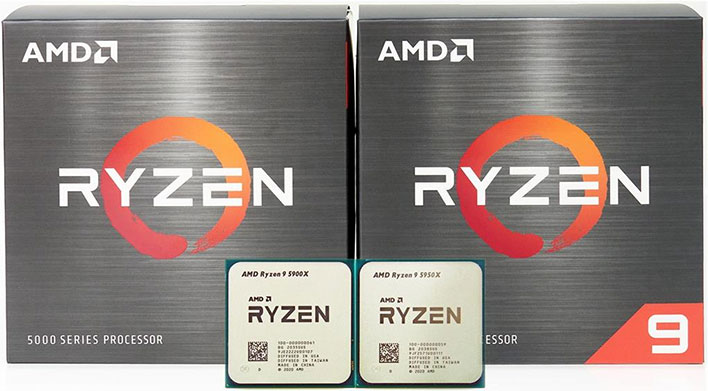Ryzen USB Reliability Woes Got You Down? Here Are Some Fixes Straight From AMD

Two weeks ago, AMD addressed a slew of complaints on Reddit related to intermittent connection issues some people reported having with USB devices connected to their Ryzen PCs powered by a 500-series chipset (X570 and B550). AMD said it was "analyzing the root cause," and said it would be contacting impacted users for more details. While no fix is yet available, AMD's support team has offered up some tips that might help.
According to the complaints thus far, the issue appears to stem from USB 2.0 ports that act erratically when a PCI Express 4.0 device is installed on the motherboard. This could be a newfangled graphics card, like any of NVIDIA's GeForce RTX 30 series or AMD's Radeon RX 6000 series, or a zippy PCIe 4.0 solid state drive like Samsung's 980 Pro.
In such cases, users have reported problems with certain USB peripherals dropping out, like keyboards, mice, headsets, and anything else that might plug into a USB 2.0 port. It also seems this is more likely to occur when the CPU is under a heavy load.
While Ryzen PC owners wait for AMD to complete its investigation and issue a fix, there are some tips affected users might want to try. They were provided by AMD to a user who reached out via email to customer support, who then posted them to Reddit.
"Thank you for your email.
I am sorry to hear that you are experiencing USB connectivity issues with your AMD 500 series chipset motherboard.
Our engineering team is activity investigating this issue with high priority and we will provide an update once a fix is available," AMD stated in the email.
The email went on to offer some three specific suggestions. At the top of the short list is to verify that the affected motherboard is running the latest BIOS version, and is configured using optimized/factory default settings. In other words, dial back any overclocks and other performance tweaks, to rule those things out. We'll add that it's also a good idea to back up your data before updating your BIOS, just in case something goes awry.
Secondly, AMD suggests checking for any Windows 10 updates that might be available. This is easy enough—just head to Settings > Update & Security > Windows Update and mash the Check for updates button.
The last suggestion is to ensure that the latest Ryzen chipset driver is installed. At the time of this writing, that would be version 2.13.27.501, which was made available in early February. You can download the chipset driver from AMD's website. Once you hit that link, select Chipsets > AMD Socket AM4, and then choose your chipset (X570 or B550).
These are all basic housekeeping chores when troubleshooting issues, and if you are affected by whatever bug is causing all this USB ruckus, they might not actually solve the issue. Still, it's good practice to keep your system up to date. You also might find that the above steps fix a problem that you thought might be related to the USB bug, but really wasn't.
That said, if none of those tips help, AMD says you can consider going into the BIOS and setting PCIe mode from Gen4/Auto to Gen 3, and disabling Global C-State. You essentially lose the benefits of PCIe 4.0 by doing this, but it's a temporary workaround until AMD comes up with a proper fix.

